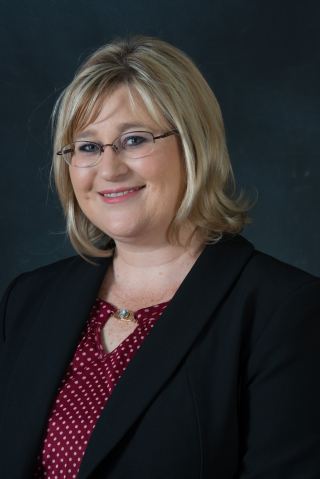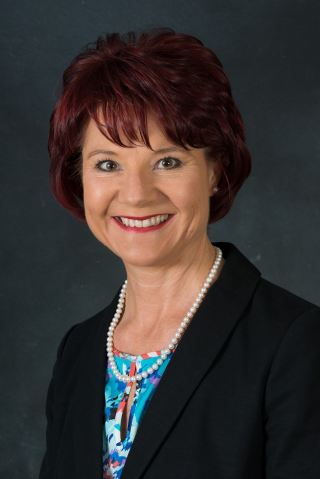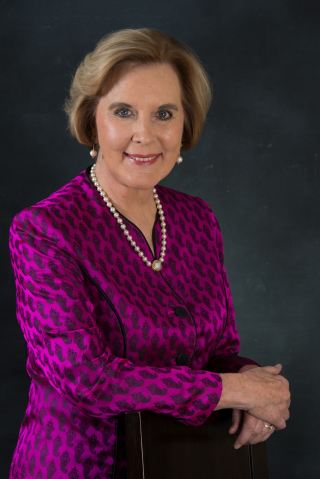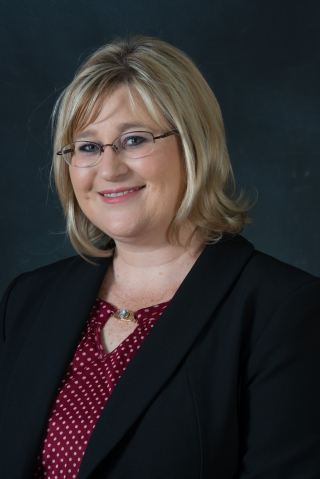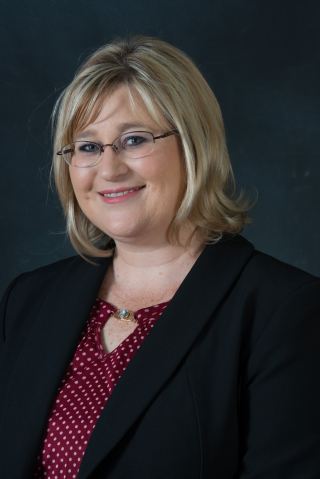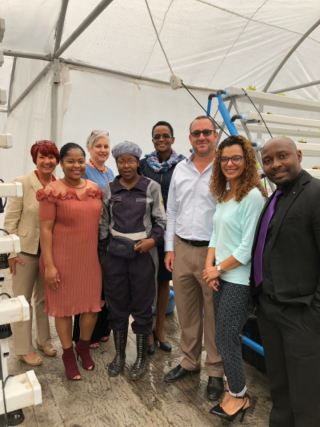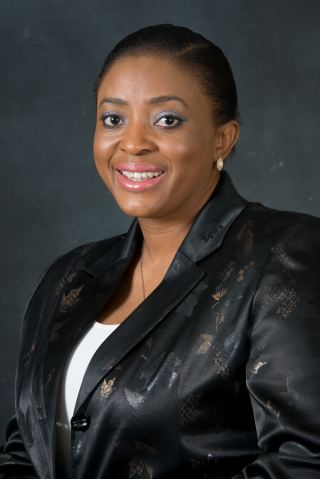Three top tips for executives going on Christmas vacation
By Signium Africa
You can’t have a real vacation if everything in your environment reminds you of business pressures and family responsibilities. You don’t have to go overseas, just somewhere different. It could be a game lodge in the bush, a holiday at the coast, camping by a dam, or simply staying in an unfamiliar town.So, if you’re a busy executive, treat your partner, your kids and yourself to a new experience. There will be plenty time for inlaws, friends and business when you get back.
Mosima Selekisho, Director: Executive Search - Pace your vacation timeTry to break your holiday into three phases: relaxation for winding down; rejuvenation for enjoying yourself; and reactivation to prepare for your return. Ideally, you need three weeks - one for each phase - but if you have less time, divide it into these stages anyway.As a competitive leader, your first instinct might be to jump on a jet ski or go skydiving. Rather opt for a good massage at the local spa, sunbathing on the beach, or anything else that lets your body rest and your mind drift. You need this.By the second phase, you’re ready to get out and have as much fun as possible, having forgotten other concerns. In the third phase, you can still have fun while making time to dream of what the new year holds in store and any positive actions you intend to take on your return.
Michelle Moss, Director: Assessments - Take a digital vacationOur devices have become a part of our daily lives so it’s difficult to switch off and disconnect for any period of time, especially for the always-on executive. Even going on holiday, we use our phones for electronic flight boarding, booking into hotels, hailing ride-sharing services, finding interesting dining and entertainment venues, taking photos and more.Yet, the more disconnected your vacation, the quicker you’ll be able to settle into the holiday spirit. Try these tips: leave your devices at home - you, your partner and your kids. Take only a single phone for emergencies, preferably with a new SIM, and share the number with a select few contacts. And switch it off when you’re not using it. For taking photos, bring along a digital camera so there’s no excuse to check emails in between.Have a great holidayIn a nutshell, disconnect digitally, mentally and physically to get the most from your vacation. Finally, from all of us at Signium, have a very Merry Festive Season and a Happy New Year.
Signium Africa (previously Talent Africa), a leading South African-based executive search and talent management company servicing sub-Saharan Africa.
www.signium.co.za
CQ Is The New EQ For Executives
By *Michelle Moss, Director: Assessments at Signium Africa
Second only to emotional intelligence (EQ), cultural intelligence (CQ) is fast becoming one of the most in demand skills for executives in today’s culturally diverse world of business. The growing need for CQ is just one of the consequences of globalisation.
It’s true that companies are setting up more bases in foreign countries than ever. But their own societies are simultaneously becoming more culturally diverse, as foreign citizens migrate in search of better career opportunities and lifestyles. This means that culture is no longer a minor concern for executives. It’s a strategic imperative, and high-CQ leadership is needed to intelligently address this trend. So what is cultural intelligence? And is it possible to develop it in your executive team? The simplest and most used definition was developed by researchers Ang and Van Dyne in 2008, as “the capability of an individual to function effectively in situations characterised by cultural diversity.”
They also suggested that CQ is structured in four dimensions, namely, metacognitive, cognitive, motivational, and behavioural CQ. These have been adopted, more or less, in subsequent research and can be summarised as follows. Metacognitive CQ is “an individual’s level of conscious cultural awareness during cross-cultural interactions”. Cognitive CQ is “knowledge of norms, practices and conventions in different cultures that has been acquired from educational and personal experiences”. Motivational CQ is the “capability to direct attention and energy towards learning about and functioning in situations characterised by cultural differences”.
Finally, behavioural CQ is the “capability to exhibit appropriate verbal and non-verbal actions when interacting with people from different cultures”. In summary, executives must be aware of cultural differences, understand them, be willing to learn more, and act in relation to that understanding. What the above establishes in no uncertain terms is that CQ is not an innate competency. It can be acquired through training and, most importantly, exposure to the culture in question.
The benefits of increased CQ are becoming more obvious by the day. Most CEOs agree that as technology takes over many traditional business functions, success will be defined by how well people interact with each other. They also agree that diverse management teams foster innovation because they bring important cultural perspectives to the table.
However, differences often breed conflict and companies who fail to foster CQ may find themselves unable to manage that diversity. In fact, CQ and innovation are closely correlated. Consequently, they risk losing their competitive edge and corporate sustainability. According to a survey by the Economist Intelligence Unit (EIU), 70% of international ventures fail because of cultural differences. Another source reveals that 90% of executives from 68 countries say that cross cultural management is their toughest challenge.
Culture is becoming so critical to business that in some organisations, astute CEOs are heading up their diversity and inclusion practice groups. It is in every business’s interest, whether they operate locally or internationally, to nurture CQ in their enterprise, especially in their executives and C-suite. If that critical talent cannot be developed in house, it should be acquired externally through executive search.
*Michelle Moss is a Director: Assessments at Signium Africa (previously Talent Africa), a leading South Africa-based executive search and talent management company servicing sub-Saharan Africa.
Website: www.signium.co.za
Tel: +27 11 771 4800
CV or Not CV, "How True?" is the Question
By *Annelize van Rensburg - www.signium.co.za
Qualifications fraud is a big problem in South Africa and, although not prominent at executive level, it does happen. To stamp out this practice, the National Qualifications Framework Amendment Act 12 of 2019 was signed into law on the 13th of August this year. It provides that people presenting false qualifications could serve up to five years in prison.
Being a businessperson who depends on honest, qualified staff, I am very happy about this development. In a country where corruption is exposed daily and where honesty and trust need to be reinstated, it will help prevent further fraud and corruption. At least there is now a material penalty to deter recruits from using forged qualifications.
However, the law does not solve the larger issue of candidates lying on their CVs.
In a struggling economy, jobseekers may be tempted to falsify information that could help them gain employment or skip some rungs on the ladder to the career and lifestyle to which they aspire. They might lie about previous titles held, their actual reward packages, their scope of responsibility, having a criminal record, being blacklisted or any other facts that either hinder or help their quest for their next top paying position.
Verification firm, Managed Integrity Evaluation, says that of 552,000 CVs it checked in 2017, 14.3% of candidates had misrepresented themselves or lied about their qualifications.
Executives typically face rigorous background checks and generally know better than to lie on their CVs. However, there are exceptions to the rule. For those who lack integrity, their desire to get ahead may tempt them to obtain false qualifications, withhold past wrongdoings or fabricate achievements.
Such actions are not only criminal but could bring into question the integrity of the hiring organisation's governance framework as well as having a negative impact on its growth and sustainability.
Yet, to cut costs, some companies are forgoing the extensive checks performed by executive search firms through their validation partners and the resulting analysis that gives assurance of a sound hire.
Executives are sometimes appointed by virtue of being a member of a trusted circle of business associates. Reward packages may be negotiated over a game of golf, and the position awarded without independent background checks. This is extremely risky.
Research has proved we’re not as good at reading people as we think. Knowing you can trust executive hires through fact-based research, trumps feelings of trust derived from regular social or business interactions. An appropriate rule of thumb is “better the devil you know” because that’s the devil you can avoid.In a time of public demand for better corporate governance, as well as transparency and justification of executive remuneration, every organisation must ensure the executives it employs have faultless track records. By using impartial executive recruiters or so-called headhunters, that engage trusted verification agencies to validate qualifications down to the finest detail, it will find the leaders it deserves.
*Annelize van Rensburg is a director of Signium Africa (previously Talent Africa), a leading South Africa-based executive search and talent management company servicing sub-Saharan Africa.
Leadership? Only humans need apply
By Annelize van Rensburg* - Director: Signium Africa (www.signium.co.za)
Ours is a disruptive world. Disruptors include AI, robotics, computerisation, globalisation and the imminent fourth industrial revolution. Already, a growing number of commercial and industrial processes are being dehumanised. So, are humans reaching their sell-by date?
Admittedly, people will have to adapt or cry (over lost jobs or diminished career prospects). The good news is that a stellar future awaits those who are flexible, resourceful, emotive and empathetic (in other words, the very human humans). This is especially true of corporate leaders who are developing coping strategies for the 2020s.Pertinent insights are afforded by work in my own specialisation – executive search and talent acquisition. Among leading practitioners, the goalposts have widened to the point where the work now entails close partnership with corporates with the aim of shaping integrated leadership and talent solutions.
Listening, understanding and empathising are the key requirements, not crunching the data to find candidates with the technical qualifications and relevant experience. Machines can do that.But machines can’t sense the cultural fit or feel the chemistry when a potential leader is exposed to new challenges.
These days, you can put a smiling face on a machine, but you can’t instil empathy and the human ability to assess feelings and emotions. Only humans can do that – whether you are a so-called headhunter looking for the ideal fit or a seasoned business leader creating a succession strategy by developing and acquiring the right talent.The importance of very human qualities is spotlighted when working with an individual executive looking to ensure continued relevance as a senior corporate performer.he key question is: what do I need to do or be to ensure career success in five years’ time?
Research the literature and international studies and the answer is the same … stay human, become more empathetic, improve your listening skills, increase your understanding of the needs of others and look to make an emotive bond with peers and subordinates.how your human qualities and colleagues and customers open up to you.
An ongoing conversation with key players will nurture the relationships that enable the organisation to anticipate demands and meet expectations.oft skills can’t be written into an algorithm. They set us apart and ensure our superiority over the cobots. Soft skills don’t create soft leaders. They create a growth platform for highly successful, ultra-receptive leaders.So, demonstrate learning agility, absorb new information and insights. Make sure there is still joy and excitement in your job; not just for you but for everyone on the team.
Creativity drives today’s successful business, not mindless repetition. A very human spark drives creativity, not reams of data.Insight and interpretation give leaders the power to focus on the key issues. A machine can generate a 25-page report filled with techno-babble. A receptive human can condense that into one page with half-a-dozen action points.ind joy in sharing and communicating. If you take everything on your own shoulders you eventually feel sucked dry by the demands of leadership. You go on to auto-pilot. In other words, you become a machine, and that’s a no-no.
Adapt by all means, but stay human. You and your organisation will be better for it.
*Annelize van Rensburg is a director of Signium Africa (previously Talent Africa), a leading South Africa-based executive search and talent management company servicing sub-Saharan Africa.
Don’t be distracted from your pursuit of executive success
By Auguste (Gusti) Coetzer* (www.signium.co.za)
A growing mismatch is becoming apparent between the behaviour of international corporate achievers and their South African counterparts. Offshore, upwardly mobile executives increasingly embrace ‘Deep Work’ and reduce distractions as they strive for quality outcomes and the type of successful track record that ensures progress up the corporate ladder.
In contrast, local executives often spend hours in inconclusive meetings, happily endure distraction via smart devices and seem to accept the curse of constant connectivity and 24/7 availability.
We see distraction aversion overseas versus distraction acceptance locally. What prompts the mismatch? The catalyst was probably Professor Cal Newport’s ‘Deep Work: Rules for Focused Success in a Distracted World’. In the book and several academic papers, he defined deep work as professional activities in a state of distraction-free concentration that push cognitive abilities to their limit.
These efforts create new value, improve your skill and are hard to replicate. Writer and entrepreneur Jason Fried also published several books on the need to exclude distractions as a prerequisite for higher personal productivity and the enhanced ability to deliver at an elite level.
The literature continues to grow as consultants and writers contribute how-to articles on the ways in which achievers can limit distraction, boost productivity and inject meaning and pride into their work through elegant outcomes and quality improvements. Ideas include ‘Do Not Disturb’ signs outside the offices of those committing time to deep work, switching off cell phones, leaving work promptly, limiting the pester power of colleagues who fail to respect personal time and cutting down on meetings and the time spent on emails.
Study of corporate realities in a distracted world highlight worrying trends. For instance, in some cases the email in-tray set daily priorities rather than business imperatives.
Deep work’s attractions were then underlined by studies into the real cost of multi-tasking and revelations that productivity does not rise, but falls as a result of ‘shallow work’. One study suggested task-switching could cut productivity by 40%. Scientists also revealed that dopamine, a substance found in our brains, is depleted by incessant hyper-stimulation. This chemical drives motivation, increases focus and drives us to action.
As deep work caught on, it was found that deep thinking without interruption enabled better concentration and fostered new insights as fresh neural pathways opened up in the brain. Initially, bosses may have been miffed by subordinates who failed to respond instantly to messages. But the rationale (‘I never take calls when I’m hard at work’) was soon taken on board, especially when deep work began to deliver qualitative benefits.
It’s simple enough to test the anti-distraction case. Leave work on time. Switch off your cellphone and smart devices. Enjoy a proper night’s sleep, without having to answer late-night calls. When arriving at work ignore emails. Early in the day after a zero-distraction evening you are rested, relaxed and creative. Use this time for deep work. Emails come later. Contrast the frustration you often feel with your satisfaction after successful immersion in a single task and its completion.
Frustration is often traceable to the time spent taking trivial calls when you should be doing something productive or wasting time in unnecessary meetings. Deep work rescues you from these traps and frees you to achieve … for the sake of the business and your own career.
*Auguste (Gusti) Coetzer is a Director of Signium Africa (previously Talent Africa), a leading South African-based executive search and talent management company servicing sub-Saharan Africa.
Website: www.signium.co.za
Tel: +27 11 771 4800
Issued By: Tale Spin Media & Marketing
Zelda Williams 082 461 0689
Career risk mitigation – the way to go for corporate high flyers
Career risk mitigation – the way to go for corporate high flyers by Michelle Moss* (Signium Africa: www.signium.co.za) 2019 Obsolescence. It happened to VCRs. It also happens to executives, even high flyers; especially the tunnel-vision variety that obsess about the job on hand.
Obsolescence no longer takes decades. It can happen at pace as technologies change and businesses react to new legislation, heightened competition and more demanding customers. Forward-thinking executives increasingly realise they have to be fit for purpose today and in five years’ time. Obsolescence is a career risk and like any risk can be managed by putting proper mitigation strategies in place.
Talent search and management companies – so-called corporate head-hunters – face increasing calls from individuals for a heads-up on changing competency requirements. Often, the request comes from the mid-life CEO, the high achiever who took a leadership role aged 45 and is determined to be in place (or to have moved on to bigger and better things) by the time he or she is 55. Competency-focused future-spotting is driven by the desire to mitigate the risk of a stalled career. However, parameters widen almost immediately.
Reference to relevant literature like the World Economic Forum’s ‘Future of Jobs Report 2018’ and the work of the MIT Initiative on the Digital Economy indicate that personal competencies are inextricably linked to the corporate future. The business or industry vision invariably shapes the personal quest for continuing relevance by individual executives.
A global player like Riverwaves (a world leader in bespoke competency-based HR solutions) is close to these developments. Alexandra Pascu, Riverwaves’ GM - Middle East and Africa, notes: “Customised competency models drive business strategy while delivering benefits across the board - at individual, HR department and organisational levels.”
According to studies on the statistical validation of competency models**, the tangible return on investment includes a 63% reduction in staff turnover through increased employee satisfaction (attributable to greater clarity on performance expectations), a 19% improvement in employee performance and a 12.5% rise in sales and profits (a by-product of competency-based training). Adoption of a bespoke competency model enables organisational vision and values to be translated into employee behaviour.
According to Pascu, the corporate embrace of competency modelling has been accompanied by a global increase in demand for in-house competency training for line managers and talent professionals. So, we see shared focus on future-ready skills by both the organisation and its people (including those in the C-suite).
Individuals looking to avoid personal obsolescence increasingly find themselves working in a de facto partnership with organisations that are just as eager to stay current and relevant. The result doesn’t have to lead to a total immersion in new technologies. We may find ourselves working alongside robots and co-bots while dealing with digitisation and artificial intelligence, but very human attributes will make us special and keep us on top.
The World Economic Forum believes workforces will become even more diverse (multi-racial, multi-cultural and multi-generational with greater female representation). Orchestrating the input of ‘gig’ workers, freelancers, short-term project teams and consultants will be vital as structures become more flexible. Such scenarios help explain a quick competency to-do list suggested by MIT’s Erik Brynjolfssons. He advises us to put our focus on: o Creativity o Emotional intelligence (interpersonal skills, teamwork and leadership) o Passion for our work Apparently, love never goes out of style.
Not even love for what you do.
-- ENDS --
*Michelle Moss is a Director at Signium Africa (previously Talent Africa), a leading South African-based executive search and talent management company servicing sub-Saharan Africa. www.signium.co.za **Meta-analysis study reported in “The economic value of emotional intelligence competencies and EIC-based HR programmes”, Lyle Spencer. In Cherniss, C. and Goleman, D. eds. The Emotionally Intelligent Workplace: How to Select for, Measure, and Improve Emotional Intelligence in Individuals, Groups and Organisations. San Francisco, CA: Jossey-Bass/Wiley 2001. Spencer, Lyle, “Competency Model Statistical Validation and Business Case Development.”www.inscopecorp.com/resources-papers-statistics.aspx, 2004.
Website: www.signium.co.za Tel: +27 11 771 4800 Issued By: Tale Spin Media & Marketing Zelda Williams 082 461 0689 or Gillian Schmid 082 960 3233 This email address is being protected from spambots. You need JavaScript enabled to view it. This email address is being protected from spambots. You need JavaScript enabled to view it.
Career risk mitigation - the way to go for corporate high flyers
By Michelle Moss*
Obsolescence. It happened to VCRs. It also happens to executives, even high flyers; especially the tunnel-vision variety that obsess about the job on hand. Obsolescence no longer takes decades. It can happen at pace as technologies change and businesses react to new legislation, heightened competition and more demanding customers. Forward-thinking executives increasingly realise they have to be fit for purpose today and in five years’ time. Obsolescence is a career risk and like any risk can be managed by putting proper mitigation strategies in place.
Talent search and management companies – so-called corporate head-hunters – face increasing calls from individuals for a heads-up on changing competency requirements.
Often, the request comes from the mid-life CEO, the high achiever who took a leadership role aged 45 and is determined to be in place (or to have moved on to bigger and better things) by the time he or she is 55. Competency-focused future-spotting is driven by the desire to mitigate the risk of a stalled career. However, parameters widen almost immediately.
Reference to relevant literature like the World Economic Forum’s ‘Future of Jobs Report 2018’ and the work of the MIT Initiative on the Digital Economy indicate that personal competencies are inextricably linked to the corporate future. The business or industry vision invariably shapes the personal quest for continuing relevance by individual executives. A global player like Riverwaves (a world leader in bespoke competency-based HR solutions) is close to these developments.
Alexandra Pascu, Riverwaves’ GM - Middle East and Africa, notes: “Customised competency models drive business strategy while delivering benefits across the board - at individual, HR department and organisational levels.” According to studies on the statistical validation of competency models**, the tangible return on investment includes a 63% reduction in staff turnover through increased employee satisfaction (attributable to greater clarity on performance expectations), a 19% improvement in employee performance and a 12.5% rise in sales and profits (a by-product of competency-based training).
Adoption of a bespoke competency model enables organisational vision and values to be translated into employee behaviour. According to Pascu, the corporate embrace of competency modelling has been accompanied by a global increase in demand for in-house competency training for line managers and talent professionals.
So, we see shared focus on future-ready skills by both the organisation and its people (including those in the C-suite). Individuals looking to avoid personal obsolescence increasingly find themselves working in a de facto partnership with organisations that are just as eager to stay current and relevant. The result doesn’t have to lead to a total immersion in new technologies. We may find ourselves working alongside robots and co-bots while dealing with digitisation and artificial intelligence, but very human attributes will make us special and keep us on top.
The World Economic Forum believes workforces will become even more diverse (multi-racial, multi-cultural and multi-generational with greater female representation). Orchestrating the input of ‘gig’ workers, freelancers, short-term project teams and consultants will be vital as structures become more flexible. Such scenarios help explain a quick competency to-do list suggested by MIT’s Erik Brynjolfssons. He advises us to put our focus on: Creativity Emotional intelligence (interpersonal skills, teamwork and leadership) Passion for our work Apparently, love never goes out of style. Not even love for what you do.
-- ENDS --
*Michelle Moss is a Director at Signium Africa (previously Talent Africa), a leading South African-based executive search and talent management company servicing sub-Saharan Africa. www.signium.co.za **Meta-analysis study reported in “The economic value of emotional intelligence competencies and EIC-based HR programmes”, Lyle Spencer. In Cherniss, C. and Goleman, D. eds.The Emotionally Intelligent Workplace: How to Select for, Measure, and Improve Emotional Intelligence in Individuals, Groups and Organisations. San Francisco, CA: Jossey-Bass/Wiley 2001.Spencer, Lyle, “Competency Model Statistical Validation and Business Case Development.”www.inscopecorp.com/resources-papers-statistics.aspx, 2004.
Website: www.signium.co.za
Tel: +27 11 771 4800
Rooftop farms may be next big thing in agri-business - Signium Africa
Rooftop farms may be next big thing in agri-business – Signium Africa (www.signium.co.za)
City-wide hydroponic rooftop farming co-operatives have the potential to become the next big thing in commercial agriculture. The prediction comes from Signium Africa, an executive search and talent management company with a large book of agri-business clients in South Africa and across the sub-Saharan region. Annelize van Rensburg, director responsible for Signium Africa’s agriculture portfolio, says first signs of the rooftop farming explosion are already evident, with black small-scale entrepreneurs in the forefront.
Van Rensburg notes: “We work for major corporates in the agricultural industry, but stay close to all important developments in the sectors we serve and the growing potential of hydroponic-based rooftop gardens in inner cities is the biggest trend on the mid-term horizon.
“Many of today’s big agri-businesses began as farming cooperatives that were formed decades ago when farmers banded together to achieve economies of scale and secure sustainable profits. The burgeoning growth of individual rooftop farms suggests similar potential exists for the formation of city-wide cooperatives by rooftop farmers. “The trend is taken seriously by the banks and organisations like Agbiz, the agricultural business chamber.
We expect critical mass in the next couple of years.” Rooftop farms are created when ‘agripreneurs’ rent empty space on the top of city buildings and use water-efficient hydroponic cultivation to grow vegetables and other crops. Inner city locations create logistic efficiencies as the farms are within walking distance of their target market – city dwellers looking for affordable food sources.
Karen Grobler, Agbiz marketing and communications manager, confirmed the organisation monitored transformation initiatives, including rooftop farms, and was excited by prospects. She says: “Our focus is on established formal business, but these small-scale entrepreneurs certainly have potential for sustained growth. We’re particularly impressed by the resourcefulness of these industry entrants.
“They are often businesswomen with a talent for creating solutions. For instance, some are looking at bio-reactors and solar energy to reduce their reliance on the electricity grid as hydroponics need a dependable power source. They already supply local retailers. Further growth can be expected.” The banks are also close to rooftop developments. Loffie Brandt, head, sales enablement, at Absa Bank, says there is “significant future potential for a massive uptick”.
He adds: “It is certainly a space where we could play in as finance is needed by all growth-minded business. Size is not always essential as with hydroponics there is potential for high-volume production at a single site. This suggests commercial viability could be achieved by small, individual operators.” One highly successful agripreneur, Sibongile Cele, has already demonstrated the growth potential up on the roof.
Her Mcebo Wealth Rooftop Farm has been supplying organically grown produce for more than two years. Crops include lettuce, spinach and herbs. The hydroponic system employs metal racking for maximum space efficiency, enabling vegetables to be grown ‘off the shelf’. Her operations in Hillbrow, Johannesburg, were funded by the Small Enterprise Development Agency and she currently reaches retail markets via an agent. She says: “I have an accounting background, so commercial success is important to me, but I also have a social mission. Providing food for the community gives me a sense of purpose.
It is also important to set an example for other women and show we can be successful, run businesses and provide food for our families and communities. “This is only the start. The sky’s the limit for rooftop farming.” Ends
Signium Africa (previously Talent Africa) is a leading South Africa-based executive search and talent management company servicing sub-Saharan Africa.
Website: www.signium.co.za Tel: +27 11 771 4800 Issued By: Tale Spin Media & Marketing Zelda Williams 082 461 0689 or Gillian Schmid 082 960 3233 This email address is being protected from spambots. You need JavaScript enabled to view it. This email address is being protected from spambots. You need JavaScript enabled to view it.
Is Doctor Google redefining our professiional Relationships?
By Auguste (Gusti) Coetzer*, Director at Signium Africa www.signium.co.za
Do search engines and other online innovations have the power to redefine professional relationships across industries? The question gathers urgency among corporate achievers looking to take the reins of major companies as an ongoing digital revolution threatens to overturn established business models, even in areas where long-established practice seemed entrenched. Perhaps the biggest single indicator of the impending shake-up is the current rethink of marketing strategies that have traditionally dominated the global pharmaceutical industry.
The old norm was characterised by facetime with doctors, free samples to encourage product trial and perhaps ‘gifting’ to cement relationships between pharma brand and physician. According to industry-watchers in the USA, this model is being overtaken as the medical sector adjusts to new online realities. The pharma industry’s traditional target audience – physicians – confront an online challenge in the shape of ‘Dr Google’ as search engines create instant consumer access to medical information. Online tools called symptom-checkers make it easy for consumers to obtain a DIY diagnosis. Research shows 35% of US adults have gone online to identify a medical condition.
Hypochondria now has a digital equivalent, cyberchondria. As a result, doctors are witnessing huge behavioural shifts, requiring pharmaceutical concerns to do the same. The Journal of the American Medical Association says occasional misdiagnosis by doctors is a concern, though a recent JAMA paper indicated physicians significantly outscore computer algorithms for diagnostic accuracy (84,3% against 51,2% by one measure).
However, flesh-and-blood doctors gave an incorrect diagnosis 15% of the time. Doctors – initially hostile to Dr Google – increasingly look at ways of augmenting their services by the use of digital tools while trying to educate patients to the difference between medical data and medical advice. Some even recommend that patients visit sites that provide credible assistance. Meanwhile, the Google trend and related developments have alerted the pharmaceutical industry to opportunities for a new relationship with medical professionals. Physicians were early adopters of mobile technology, including beepers, pagers,
PDAs, smartphones, tablets and handheld devices for consulting patient records and reference works. As long ago as 2009, one US source put the healthcare sector’s investment in handheld devices and similar technology at $8,2 billion. Clearly, gadget-friendly doctors are open to new avenues for marketing interaction.
The process is already underway. Facebook, LinkedIn and Twitter create space for physicians to organise online communities while US sites like Physicians Interactive and Sermo (for MDs only) reach nearly a million medical professionals. Such platforms enable pharmaceutical companies to engage doctors in new ways. Some pharmaceutical companies are therefore looking to retool their marketing strategies and embrace the cyber-future. Hiring medical communication specialists to engage online with doctors is one route forward.
One marketing consultant says online interventions could help doctors cut information clutter and facilitate links with clinical trials, research papers and opinion-leaders. The retail, hotel and travel industries have already had to adjust to new cyber-realities. A second wave of industries looks set to make similar adjustments. It is little wonder major companies increasingly look for leaders who show acute awareness of digital trends and demonstrate flexibility and a spirit of innovation in the face of change. Being steady and dependable is no longer enough. To lead an organisation into the future, you may have to be radical, even revolutionary, thinking out of the box!
*Auguste (Gusti) Coetzer is a Director of Signium Africa (previously Talent Africa), a leading South African-based executive search and talent management company servicing sub-Saharan Africa. Website: www.signium.co.za Tel: +27 11 771 4800
Issued By: Tale Spin Media & Marketing
Zelda Williams 082 461 0689 | This email address is being protected from spambots. You need JavaScript enabled to view it.
Gillian Schmid 082 960 3233 | This email address is being protected from spambots. You need JavaScript enabled to view it.
The painful burden women achievers never talk about
By Mosima Selekisho, director at Signium Africa (www.signium.co.za)
International Women’s Day (8 March) has a provocative theme this year – Balance for better and encourage action. Presumably, balance is currently poor and action is needed for women to reach their goals. Most would agree with this assessment and IWD commentators will doubtless interrogate ‘the usual suspects’ –cultural norms, patriarchy, resistance to change and the supposed failure of some women leaders to do more to uplift other women.
The cry that top women don’t do enough has become strident in recent years. I am well placed to judge. As a so-called head-hunter for executive talent, I interact with women at the top of large organisations and with a new generation of female go-getters. Women on the way up often complain senior female colleagues do little to help while those who have made it will sometimes admit as much.
Why don’t they? Conversations over several years suggest the reasons go beyond demands on time or disinclination to lend a hand on the basis that ‘nobody helped me so why should I smooth the way for this newcomer?’ Top women find it difficult to help because they themselves are wounded and live with a lot of internal pain. This is never admitted. One characteristic of top achievers is that they put on a good front. They always seem in control. This mask never slips. Perhaps it should. The pain is inevitable. Women give of themselves and live every day with issues affecting husbands and partners, children and family members.
Thoughtful, giving women carry unseen burdens, especially in Africa. The scrapes of children at school, financial obligations when you’re the biggest earner in an extended family, a spouse’s career difficulties, the problems of kids at university, even police enquiries affecting members of the wider family ... all these issues and more have to be handled day by day. The woman who supposedly has it all is expected to solve it all. That can mean anything from helping a sibling quit substance abuse to paying the legal fees of a partner facing litigation. What can women do about it? First, look in the mirror and confess the professional front has become a mask. Admit you have been carrying internal pain for years.
You might even be embittered by the thoughtlessness of others and their assumption that you will always cope. This gives you a chance to release the pain. Those who have gone along this road say honest discussion with those close to you gives the best chance of a pain-free future. The blame you cast on those around you will be replaced by deeper understanding while those close to you will realise they can’t simply add to your burden.
You also have a life. Women released from private pain have more time for colleagues. Greater rapport leads to greater willingness to help. Upliftment of others is natural after that. Wounded women find they also achieve career growth. The focus falls on blind-spots and getting the wider team to work toward a single vision. The top achiever begins to see areas in which she can also improve. Carrying burdens makes you strong, but you eventually stoop under the weight and see just one step at a time. You only see the big picture and help others when you put the burden down.
*Mosima Selekisho is a Director of Signium Africa (previously Talent Africa), a leading South African-based executive search and talent management company servicing sub-Saharan Africa.
-- Ends --
Website:www.signium.co.za
Tel: +27 11 771 4800
Issued By: Tale Spin Media & Marketing
Zelda Williams 082 461 0689 or Gillian Schmid 082 960 3233
This email address is being protected from spambots. You need JavaScript enabled to view it. | This email address is being protected from spambots. You need JavaScript enabled to view it.


